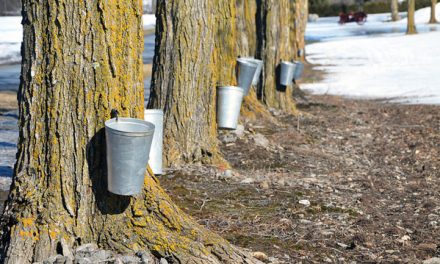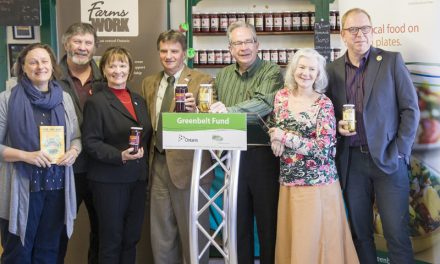By Sandy Casselman
AgriNews Staff Writer
OTTAWA – With little more than a month between the call for a federal election and the vote itself, the Canadian Federation of Agriculture (CFA), along with other industry advocates, is raising its collective voice and calling on Prime Minister Justin Trudeau, and his competitors to make agriculture part of their platform.
In an Aug. 16 press release, the CFA called on federal parties to prioritize agriculture in their plans for Canada’s economic recovery. It was noted that one of the main priorities is to increase funding for the Next Policy Framework (NPF), which according to Canada.ca “is a wide-ranging federal-provincial-territorial agreement that will replace the current five-year, $3 billion Canadian Agricultural Partnership that is set to expire in March 2023.”
The CFA is calling on parties to focus on helping farmers face current and future climate change issues, and to deal with infrastructure deficits in transportation, broadband access, and skills development. The CFA is further recommending that party platforms look at the following specific items: modernizing Canada’s post-secondary infrastructure for agricultural research, removing bottlenecks in transportation infrastructure, facilitating the smooth and efficient transfer of family farms, ensuring the Canadian Grain Act review results in funding comparable to competitor countries, and supporting regulations addressing on-farm activism that could endanger animals and farm families.
“A lack of rural connectivity is a prime example of a problem that can no longer be ignored, especially as we usher in a new generation of farmers who rely on the internet for their lifestyle and day-to-day business needs. Basic minimum standards need to be guaranteed that meet the needs of today and the future,” CFA president Mary Robinson said in the release. “Canadian agriculture has been repeatedly identified by the government and financial institutions as a sector that can achieve incredible growth. Yet consecutive governments have failed to provide any kind of increase in consistent funding to actually achieve this growth, failing to even keep up with inflations.”
The CFA is not the only one speaking out ahead of the Sept. 20 election. The Grain Growers of Canada (GGC) group has released a 10-page brochure, Driving Economic Recovery Through Canadian Agriculture, outlining what they believe should be included in the federal election platform priorities. The GGC brochure states that unlocking the potential for Canada’s grain industry to drive a “much-needed post-pandemic economic recovery” requires addressing issues in the following key areas: risk management, research and development, regulatory relief, modernize the Canada Grain Act and Canadian Grain Commission, trade, aggressively defending Canada’s exporters, and climate change.
Under risk management, GGC said the priority is to commit $300 million to ensure more effective risk management programs are available to farmers when they need it. Under research and development, the identified priority is to invest in agriculture research at a level matching two per cent of farm cash receipts. Under regulatory relief, GGC identifies modernizing regulations to make Canada a top five country for global regulatory competitiveness as a priority.
Other GGC priorities include modernizing the Canadian Grain Act to reduce costs, maintain protection, and return excess service fees to farmers, and protecting market access by working in-country with trading partners to prevent barriers from being erected, and aggressively defending Canada’s exporters when trading partners are offside with agreement to rules of trade and the spirit of free trade.
As for climate change, GGC is calling on the federal government to make farmers an integral part of Canada’s emission reduction and environmental stewardship approach. They’ve outlined a five-point plan, which includes making on-farm carbon sequestration a major plank in Canada’s climate change mitigation and adaptation strategy, recognizing that ongoing farmer contributions to carbon sequestration require ongoing payment for this public service, creating a range of flexible and rewarding offset protocols to incentivize farm practices to reduce emissions, investing in innovation that reduces emissions while enhancing productivity and economic return for the grower, and investing in land conservation through direct compensation for activities such as the removal of marginal land from production or protecting wetlands.
“Canada’s agricultural industry has the potential to create wealth and economic growth, while simultaneously leading our nation’s fight against climate change, if the proper actions are taken by government,” the GGC stated.
The country’s 44th federal election was called on Aug. 15. Canadians will place their votes on Sept. 20. Advance polling days include Sept. 10 to Sept. 13. For more election-related information, visit elections.ca.












